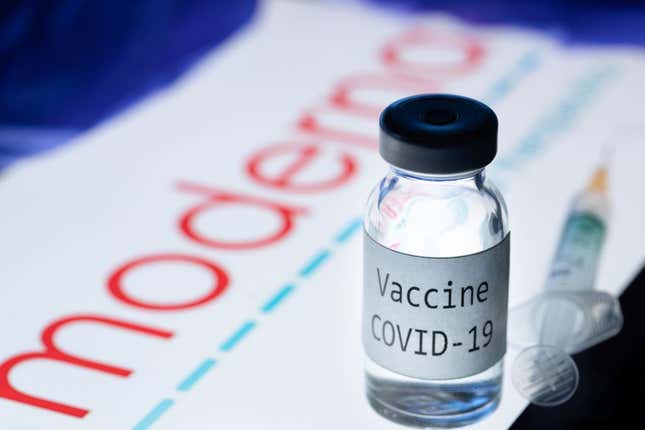
The Federal Drug Administration has authorized a second COVID-19 vaccine, opening the door for more people to receive doses against the virus which brought the country to a halt this year and continues to rack up deaths.
On Friday, the FDA announced that it has issued emergency use authorization for a vaccine developed by Moderna, allowing it to be administered to people who are 18 years and older.
Dr. Anthony Fauci, who is the country’s leading infectious disease expert, recently sought to allay concerns in the Black community about the safety of the coronavirus vaccines by pointing out that the one from Moderna was developed in part by a Black woman, Dr. Kizzmekia Corbett.
Trials show that the Moderna vaccine is over 94 percent effective in protecting against COVID-19.
The FDA says the data and science show that the vaccine’s benefits outweigh any of its risks, though it mentioned that the Moderna vaccine—which has to be administered in two doses a month a part—does come with some side effects. There also isn’t evidence that it can prevent the coronavirus from passing between people.
The Moderna vaccine authorization comes after a week in which the first doses of the Pfizer-BioNTech COVID-19 vaccine were distributed to frontline healthcare workers across the country (as well as high profile members of the Trump Administration, like Vice President Mike Pence).
Vaccine distribution hasn’t been without its hiccups. State officials across the country this week reported receiving less doses of the Pfizer vaccine than they initially believed they would be getting, and called out the federal government for the discrepancies.
From the New York Times:
Dr. Mark Levine, commissioner of the Vermont Department of Health, said in a Friday briefing: “All my colleagues in the region are reporting a 25 to 35 percent decrease in their allocation for next week. As we were walking in, I learned as many as 975 doses out of an expected 5,850 doses would not be coming in when we expected. That doesn’t mean we won’t be getting all of those doses. It just means they won’t be coming in when we expected.”
He added, “What everyone around the country is upset about, in addition to just the number, is there’s been no communication, so there’s no understanding of what this really means.”
Pointing out how hard hit Wisconsin has been, Gov. Tony Evers complained that the state was receiving significantly less of the Pfizer-BioNTech vaccine than it had been promised — 35,100 doses instead of 49,725. In a statement on Friday, he said, “We call on the federal government to send us more vaccine without delay.”
An earlier report from the Times said the Trump Administration passed on an opportunity to purchase additional doses of the Pfizer vaccine when the company offered it to the government earlier this year.
Around 5.9 million doses of the Moderna vaccine will be shipped out to hospitals and health centers this weekend, with distribution of doses expected to begin as early as Monday and continue into the coming weeks.

